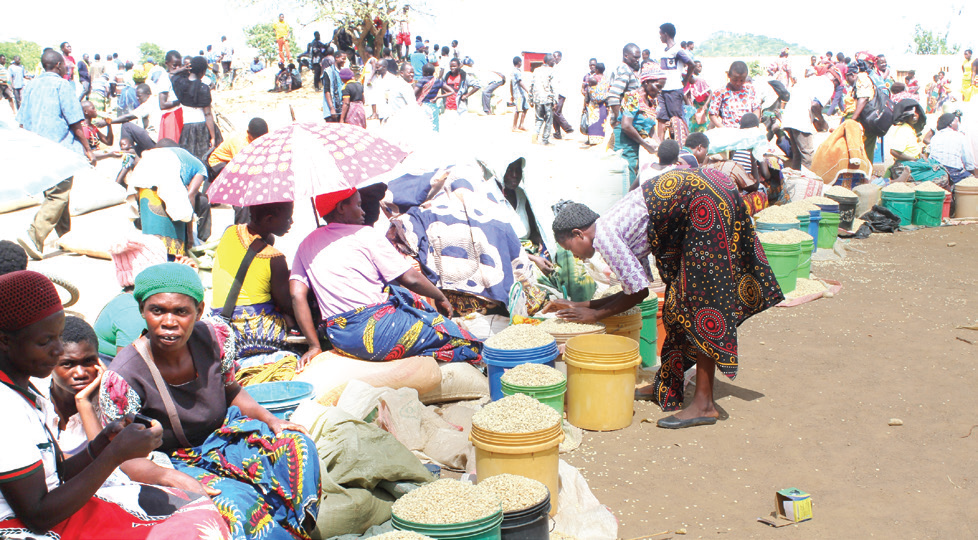Key Business Points
- The cost of basic needs in Malawi has increased by 21 percent from January to August this year, excluding transport expenses, with the total cost of living reaching K962 280 when transport is factored in.
- Food prices have risen by 22.4 percent during the same period, further exacerbating the cost of living crisis and affecting low-income earners who are struggling to make ends meet.
- Employers are urged to discuss wage adjustments with employees, taking into account productivity, profitability, and affordability, to find mutually beneficial solutions that can help workers cope with the rising cost of living.
The rising cost of living in Malawi is having a significant impact on the country’s business community, particularly low-income earners who are finding it difficult to survive. According to the Employers Consultative Association of Malawi (Ecama), the cost of basic needs, excluding transport expenses, has increased by 21 percent from January to August this year, from K739 023 to K898 280. When transport is factored in, the total cost of living reaches K962 280. This has led to a cost of living crisis, with many workers struggling to make ends meet.
The food prices have been a major contributor to the cost of living crisis, with a 22.4 percent increase from January to August. This has affected many low-income earners, such as Dorcus Chirambo, who earns a salary of K300 000 per month and is finding it hard to survive. Despite cutting costs by walking to work, Chirambo is still struggling to make ends meet, with the rising cost of basics such as food and utility prices making it difficult for her to survive. As she said, "we are barely managing to survive this tough economic environment."
The headline inflation rate has also increased, from 27.3 percent in July to 28.2 percent in August, according to the National Statistical Office. This has further exacerbated the cost of living crisis, with many workers calling for wage adjustments to help them cope with the rising cost of living. The Malawi Congress of Trade Unions (MCTU) has urged the government to intervene and stabilize the economy, with president Charles Kumchenga saying that the cost of living has become unbearable for most workers.
In response to the situation, Ecama executive director George Khaki has encouraged employers to genuinely discuss wage adjustments with their workers, taking into account productivity, profitability, and affordability. He emphasized that wages cannot be looked at in isolation, and that employers need to consider several factors, including productivity rates, profitability rates, and affordability of wages. As Khaki said, "we must understand that the current operating economic environment with high inflation, shortage of foreign exchange, high interest rates, and shortage of fuel are also impacting on the productivity of employers."
The International Labour Organisation (ILO) has also emphasized the importance of minimum wages in addressing low pay and wage inequality. While the Ministry of Labour announced a 40 percent increase in minimum wage in July, the MCTU has demanded a 100 percent increase in national minimum wage. As the ILO Minimum Wage Fixing Convention 1970 specifies, minimum wage levels should take into account both the "needs of workers and their families" and "economic factors, including the requirements of economic development [and] levels of productivity." This is a crucial consideration for employers and policymakers in Malawi, who need to find a balance between wage adjustments and economic development.
In Chichewa, this is known as "kugwira ntchito kwambiri" or working very hard, but still struggling to make ends meet. Many workers in Malawi are facing this challenge, and it is essential for employers and policymakers to work together to find solutions that can help workers cope with the rising cost of living. As Kumchenga said, "this situation has led to most companies closing down and cutting jobs across the key economic sectors of our country." It is crucial for employers to discuss wage adjustments with their workers and find mutually beneficial solutions that can help workers survive this tough economic environment.
What are your thoughts on this business development? Share your insights and remember to follow us on Facebook and Twitter for the latest Malawi business news and opportunities. Visit us daily for comprehensive coverage of Malawi’s business landscape.
- Malawi’s Tourism Boom: A K1 Trillion Opportunity for Business Growth! - March 4, 2026
- Bad Loans Fall: Positive Shift Signals Economic Recovery - March 3, 2026
- Bank Levy Deductions Spark Public Outcry and Economic Debate in Malawi - March 3, 2026

